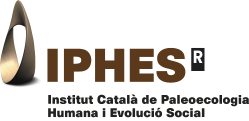NewsNext Previous
IPHES welcomes the presentation of 31 master thesis of the Erasmus Mundus in Quaternary Archaeology and Human Evolution
Together with the European students that have defended their work other students from many different countries as Tanzania, Mexico, Ethiopia, Jordan, Indonesia, Philippines, Brazil and Cambodia have participated
Among the subjects, there are studies applying reconstructions in 3D, the first tools, climate changes, rock art, the evolution of the brain or children’s learning
Coinciding with the start of the course, the IPHES (Institute of Human Paleoecology and Social Evolution) has hosted the presentation of 31 Erasmus Mundus master’s thesis in Quaternary Archaeology and Human Evolution, taught in the Rovira i Virgili University (URV), in Tarragona (Spain) eleven of which they have been made by students of this university. Apart from European students of Spain, Italy and Portugal, have defended their works students from many other countries as diverse as Tanzania, Mexico, Ethiopia, Jordan, Indonesia, the Philippines, Brazil and Cambodia. Among the subjects under study we found applications of 3D reconstructions, the first tools, climate changes, rock art, the evolution of the brain or children’s learning. The defense was held on 16th and 17th September.

The Erasmus Mundus Master in Quaternary Archaeology and Human Evolution is given in partnership with other European institutions, particularly college the University of Ferrara, (Italy), the National Museum of Natural History (Paris), the Tomar Polytechnic Institute and University of Tras-os-Montes and Alto Douro (both in Portugal) and the University of Diliman (Philippines).
Internationalization
Since 2006, tenth year of master student have been graduated and more than 120 research papers have been completed so far. Many of them are based on different projects in which the IPHES participates, in line with the center of uniting teaching with research, field work and socializing.
Indeed, the Erasmus Mundus Master in Quaternary Archaeology and Human Evolution began to teach at the URV the 2004-2005 academic year, thanks to the research carried out in the IPHES, participating in major global projects in its field. Last year, the European Commission renewed this academic offer within the new Erasmus + program for three more years, this award represents an important recognition of the quality and singularity to attract students and represents a key on the internationalization objectives of the URV.


